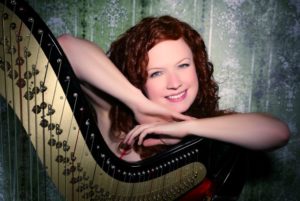Have you ever been to a large city in China? Whilst in Shanghai a few years ago there were many “culture shocks” for a Northern European like me to deal with. Whether it was the more obvious differences such as street signage and the significant language barrier, to the more unexpected such as the smells of the food from street vendors or the arcade machines which contained live lobsters as prizes – it all took a few days to adjust.
Shanghai’s cityscape is a difficult thing to appreciate due to the smog but from day one I felt that there was something missing. I was accustomed to bouts of homesickness and loneliness whilst travelling long haul but knew that this was something different. It took a rare, clear, relatively smog-free day for it to dawn on me – there were no wild birds and therefore no birdsong.
One of the most romantic and unique things about a British summer are the long nights. I guess we sometimes take it for granted that during August we can still be sitting outside in daylight at 9:30 pm enjoying the longer, warmer evenings as we’re accustomed to the opposite come December and January. But part of the majesty of these long evenings is the miraculous variation of songs of garden birds such as Song Thrushes, Collared Doves with their arguably repetitive but reassuring “un-i-ted”, the screeching of Swifts overhead and of course, the unrivalled beauty of the Blackbird – immortalised by The Beatles song.
There are many reasons why cities like Shanghai have lost their birdsong. The lack of trees in urban landscaping is certainly a huge factor. In Europe we’re used to any new project requiring at the very least a token gesture of green. Chairman Mao also practically eliminated the House Sparrow from parts of China as he viewed it as a symbol of capitalism. Add to that, the consumption of birds by the locals and if I were a bird, I too would take wing to the smaller Chinese towns and rural districts where I could thrive (and see where i‘m flying).
I did hear one wild bird in Shanghai though – it was a Herring Gull. You know, the ones which steal your chips in Whitby, Rhyl or Southend? The huge, somewhat intimidating gull which seems to have little fear of humans as it loiters, waiting to seize any ice cream cone which might be dropped by a toddler.
Whilst their calls don’t have the beauty of a songbird, these chip thieves are still majestic on the wing
Despite their call being shrill and anything but melodic it was music to my ears in an otherwise audible vacuum. It stood out in the distance against the hum of traffic, people and air conditioners and was a thing of beauty.
There have been hundreds of lessons learned during the Covid-19 pandemic and one that is clear is that it is the small things that we miss the most. Meeting friends, going to the cinema, playing games, watching live sport, visiting loved ones in hospital and going to a music concert or the theatre. These varied shared experiences (along with our thumbs if you ask a scientist) are what sets us apart from much of the natural world. We’re a social animal that has thrived, grown and dominated the planet due to our desire to create a global network and these societal bonds are underpinned by a variety of rituals. The rituals differ across different cultures and religions of course, whether it be a Christening in Christianity or a Bar mitzvah in Judaism. These traditions not only cement individuals lives within their community and congregations but they also reaffirm the bonds within society and create long lasting, happy memories for all involved.
In 2020, over 132,000 weddings were postponed in the UK, predominantly due to the pandemic. Another metric to try to quantify that is that 71% of those intending to marry simply haven’t yet. With the average UK wedding normally hosting 90 guests, that is around 12 million people’s happy, shared memories stuck in a holding pattern (for now at least).
“12 million people’s happy, shared memories stuck in a holding pattern”
Like many others, the wedding industry has been extremely hard hit by the pandemic. Mass, or even relatively modest gatherings or people have been hindered through several iterations of lockdowns, tiering and restrictions – not conducive to allowing an industry to boom but understandable from a national health perspective. The UK wedding industry is estimated to have lost around £5 billion in revenue in 2020 and many insurers have reinforced their negative reputations by managing to avoid many payouts for cancellations, often on technicalities leaving venues, couples and suppliers high and dry.
Re-planning a wedding where there is no clear end to the pandemic is a challenge in itself of course. As the backlog of loving couples continues to grow, time slots for churches, registry offices and venues diminish. And the rest of the supply chain also becomes squeezed. For those who survive the economic downturn there will of course be increased demand in 2021 and certainly in 2022 where they all hope to be busier than ever to try and make up for the shortfalls of 2020 – but there are an increasing number of couples who are taking the plunge anyway. They’re tired of waiting and deciding to sacrifice the “big bash” and to make the most of a less than ideal situation.
“It’s a nice day for a white wedding
It’s a nice day to start again” – White Wedding by Billy Idol
So how do you have a successful wedding reception when you’re limited? In short, during a full lockdown it is very tricky, particularly in England. Some couples are choosing to have a very small ceremony with a delayed reception so they can at least have something to plan and look forward to, whilst committing to their partner. This also gives them the opportunity to secure the required suppliers for the reception – from the venue, flowers and cake to the band, caterers, photographer and wedding cars. One positive way to look at this is that it is a clever way of spreading the costs, another is that the couple get two happy days and a more intimate ceremony with the likes of a harpist.
| Country | Are Weddings Allowed? | Maximum Attendance |
| England | Only in exceptional circumstances | Up to 6 people (not including event officials) |
| Wales | Approved venues only | Subject to a venue specific social distancing risk assessment |
| Scotland | Permitted if venue allows for social distancing | Up to 5 people including the couple, witnesses and officiant |
| Northern Ireland | Permitted but all guests must wear face masks | Up to 25 people subject to a risk assessment |
Wedding ceremony lockdown rules for UK in early 2021
For those couples who do forge ahead with limited plans, each component becomes that much more important. Like an exquisitely crafted dessert made by the world’s best pâtisserie – every bite needs to be savoured and there isn’t room for waste. And as most couples are forced to wait for their special day, every morsel will taste that little bit sweeter.
And that is where the soundscape comes in. With less guests there is less chat and the general background hum of a wedding reception. Whilst silence can often be “golden” a wedding celebration isn’t somewhere that demands quiet. Perhaps it is true that couples have given more thought to their wedding soundtrack in the past few decades then perhaps they did in the 1980s or 1970s when it was normal for a local DJ or friend to play whatever they wanted. But now, arguably more than ever, time-stamping the memories audibly is a huge part of the overall delivery of a wedding and wedding reception.
Each couple’s tastes will of course differ and one benefit of a smaller wedding party is that there is a less eclectic range of tastes to try and cater for. We’ve all been to a “beige wedding” or two in our time where trying to please everyone can end up with a forgettable affair for all concerned – so choosing to “please yourselves” with your music choice is not only forgivable but 100% advisable.
So whether you’re into your motown and funk, rock classics or modern jazz you can cater largely for yourselves. An almost private gig if you like where in many cases you can prescribe the set list and experience truly unique, one-off performances.
Which brings me back to the herring gull in Shanghai. I’m not a birdsong expert but I’d imagine that each individual bird has its own unique sound even if it were to be in a huge flock. But when isolated and focussed on, it resonates even more and makes time stop for a moment as your senses soak in that sound. And it is these sounds, coupled with the other experiences at the time which are capable of capturing important moments, blotting out all of the noise, anguish, fears and negativity we’ve all recently experienced and creating treasured moments for life. Moments we can reflect on for years to come as it is these simpler things that we live for. Not perhaps the huge white (beige) weddings of old but a newer, more intimate celebration of what can still be one of the happiest and joy filled days of your life.
(Or you can wait until 2023, invite 350 people and dance until 5am – your choice!)
Rachel Harpist is available for live performances by booking with Hire Row Music here along with a variety of hand-picked professional wedding singers and groups from across the UK able to cater for any size and type of wedding reception imaginable.
Call us today to learn more about how High Row Music can help you to imagine your perfect wedding day on 0800 772 3906.



